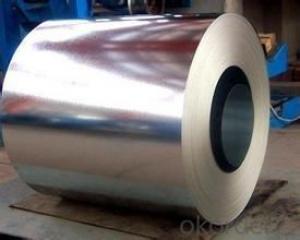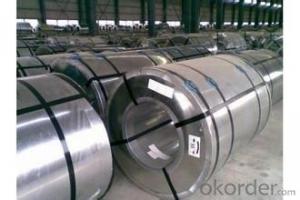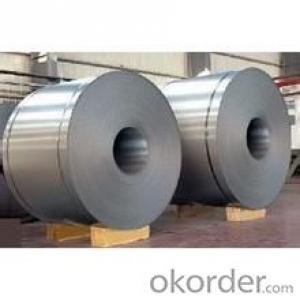EXCELLENT HOT-DIP GALVANIZED/ ALUZINC STEEL in China
- Loading Port:
- Tianjin
- Payment Terms:
- TT OR LC
- Min Order Qty:
- 20 m.t.
- Supply Capability:
- 5000000 m.t./month
OKorder Service Pledge
OKorder Financial Service
You Might Also Like
Product Description:
THICKNESS:0.18mm-1.5mm
WIDTH:900mm-1250mm
COATING MASS:AZ30-AZ150
SPANGLE:Minimized Spangle,Zero Spangle
SURFACE TREATMENT:N0on or Chromated,Non or Oiled,Non or Anti Finger Print
COIL INNER DIAMETER:508mm/610mm
COIL WEIGHT:3mt-7m
Applications of our Galvalume Coil:
Galvalume Coil widely used for roofing products, It is also the ideal base material for Prepainted Steel Coil.
1. roofing
2. gutters
3. unexposed automotive parts
4. appliances
5. furniture
6. outdoor cabinetry
Hot-dip galvanized steel coils are available with a pure zinc coating through the hot-dip galvanizing process. It offers the economy, strength and formability of steel combined with the corrosion resistance of zinc. The hot-dip process is the process by which steel gets coated in layers of zinc to protect against rust. It is especially useful for countless outdoor and industrial applications.
Production of cold formed corrugated sheets and profiles for roofing, cladding, decking, tiles, sandwich walls, rainwater protective systems, air conditioning duct as well as electrical appliances and engineering.
- Q:How are steel coils used in the manufacturing of fuel systems?
- Steel coils are commonly used in the manufacturing of fuel systems for their strength, durability, and resistance to heat and corrosion. These coils are typically formed into various components such as fuel tanks, pipelines, and fuel lines. The steel coils provide structural support and ensure the integrity of the fuel system, enabling safe and efficient transportation, storage, and delivery of fuel.
- Q:How are steel coils used in the production of transportation systems?
- Steel coils are an essential component in the production of transportation systems as they are used to manufacture various parts such as car bodies, chassis, and other structural components. These coils are shaped and processed to create different forms of steel, which are then used in the construction of vehicles like cars, trucks, trains, and ships. The durability and strength of steel make it an ideal material for transportation systems, ensuring safety and reliability.
- Q:does he use a nylon guitar or steel?
- He's using a nylon guitar. The trick to know whether it is nylon or steel is by looking at the headstock. steel ones use the ones you see from a regular electric guitar. the nylon ones has two major holes on them I don't know why but that's based on what i have seen. One more thing is its bridge. the nylon ones do not use pin-like stoppers to prevent the strings from falling off unlike the steel-stringed guitars that use them.
- Q:what are the characteristics when of iron or steel when stretched? which one could be stretched further? which one stretches more evenly?thankyou
- Steel is harder and more brittle than iron since it has impurities which disrupt the regular layers of atoms. This means that the iron will stretch further and more easily. This also means it will stretch more easily.
- Q:How are steel coils coated for corrosion resistance?
- Steel coils are typically coated for corrosion resistance using various methods such as hot-dip galvanizing, electroplating, or applying a protective layer of paint or powder coating.
- Q:how much pressure can steel withstand? and how much pressure can concrete withstand? per m3 or cm3? thanks
- Your question is not specific,there are many types of Concrete according to ratio and many types of steel but if want general answer,Concrete is good for compression and for 1:2:4 Cement-Sand-Gravel Ratio up to 4000 psi but very weak in tension where as tor steel is good for tension and is about 70000-80000 psi .
- Q:What are the common size limitations for steel coils?
- The common size limitations for steel coils vary depending on the specific requirements of the industry or application. However, there are some general size limitations that are commonly followed in the steel manufacturing and distribution industry. The width of steel coils typically ranges from as narrow as 0.25 inches (6.35 mm) to as wide as 72 inches (1828.8 mm). This wide range allows for versatility in various applications, from automotive parts to construction materials. The thickness of steel coils can also vary significantly, usually ranging from 0.006 inches (0.15 mm) to 0.5 inches (12.7 mm). Thinner coils are often used in applications that require lighter weight and flexibility, while thicker coils are commonly utilized in heavy-duty applications that demand strength and durability. The weight of steel coils is another factor to consider, especially for transportation and handling purposes. Typically, steel coils can weigh anywhere from a few hundred pounds to several tons. The weight limitations are dependent on factors such as the size of the coil, the steel grade, and the equipment used for transportation and storage. Furthermore, the outer diameter of steel coils can also have limitations. It usually ranges from 24 inches (609.6 mm) to 72 inches (1828.8 mm). The inner diameter, on the other hand, can vary from 16 inches (406.4 mm) to 24 inches (609.6 mm). These dimensions are critical for ensuring compatibility with processing equipment and storage racks. It is important to note that these size limitations are not fixed and can be customized based on specific requirements. Steel manufacturers and distributors often work closely with their customers to determine the optimal size and dimensions of the coils to meet their specific needs and ensure efficient handling and processing.
- Q:How do steel coils contribute to thermal insulation in buildings?
- Steel coils do not directly contribute to thermal insulation in buildings. Steel coils are typically used in the construction of structures and for various applications, but they do not have inherent thermal insulation properties. Other materials such as insulation boards, panels, or foams are commonly used for thermal insulation in buildings.
- Q:How are steel coils processed for different finishes?
- Steel coils are processed for different finishes through various techniques such as hot rolling, cold rolling, pickling, and coating. Hot rolling involves heating the steel coils and passing them through rollers to achieve desired thickness and shape. Cold rolling further enhances the surface finish by reducing thickness and increasing strength. Pickling involves removing impurities and scale from the surface of the steel coils using acid solutions. Finally, coating techniques like galvanization or painting are used to provide protective and decorative finishes to the steel coils.
- Q:How hot does steel have to get before it will melt?
- Type your query into Yahoo! Search or other search engines to get the answer: It depends, since steel usually has different metals added for various properties (strength, corrosive resistance, etc.)
1. Manufacturer Overview |
|
|---|---|
| Location | |
| Year Established | |
| Annual Output Value | |
| Main Markets | |
| Company Certifications | |
2. Manufacturer Certificates |
|
|---|---|
| a) Certification Name | |
| Range | |
| Reference | |
| Validity Period | |
3. Manufacturer Capability |
|
|---|---|
| a)Trade Capacity | |
| Nearest Port | |
| Export Percentage | |
| No.of Employees in Trade Department | |
| Language Spoken: | |
| b)Factory Information | |
| Factory Size: | |
| No. of Production Lines | |
| Contract Manufacturing | |
| Product Price Range | |
Send your message to us
EXCELLENT HOT-DIP GALVANIZED/ ALUZINC STEEL in China
- Loading Port:
- Tianjin
- Payment Terms:
- TT OR LC
- Min Order Qty:
- 20 m.t.
- Supply Capability:
- 5000000 m.t./month
OKorder Service Pledge
OKorder Financial Service
Similar products
New products
Hot products
Related keywords






























